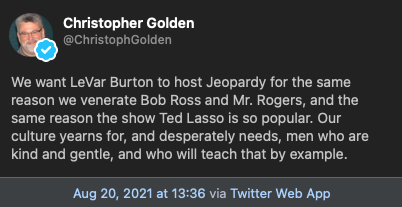To be perfectly honest, I have been planning to write this for some time, but there are a couple of other posts that have been floating around for a bit in the past week that I thought would make good reference points for how I feel about cryptocurrency in general.
It’s well-known at this point that the computation necessary both to generate and to process cryptocurrency and its transactions consumes enough electricity to power a decently-sized nation. And that—while not the sole reason by far—cryptocurrency mining has begun to price computer components beyond the reach of many individuals, as we approach the second year of GPU shortages and are now hearing that storage space will soon be used for a new type of cryptocurrency.
On September 1st, 2020, GitLab announced that their free CI offering was being restricted in response to “usage.” Two months later, TravisCI announced that a similar restriction in response to “significant abuse.”
Concurrently with these pricing changes, the market capitalization of mineable cryptocurrencies has exploded.
These events are related: As the market capitalization of cryptocurrency surged from $190 billion in January of 2020 to $2 trillion in April of 2021, it’s become profitable for bad actors to make a full time job of attacking the free tiers of platform-as-a-service providers.
–Colin Chartier at layerci.com
Crypto mining is beginning to encroach upon services that many people in technology use for their own projects (for legitimate purposes). It’s beginning to become a literal menace for systems folks:
Cryptocurrency problems are more subtle than outright abuse, too. The integrity and trust of the entire software industry has sharply declined due to cryptocurrency. It sets up perverse incentives for new projects, where developers are no longer trying to convince you to use their software because it’s good, but because they think that if they can convince you it will make them rich.
[…]
Any technology which is not an (alleged) currency and which incorporates blockchain anyway would always work better without it.
[…]
That’s what cryptocurrency is all about: not novel technology, not empowerment, but making money. It has failed as an actual currency outside of some isolated examples of failed national economies. No, cryptocurrency is not a currency at all: it’s an investment vehicle. A tool for making the rich richer. And that’s putting it nicely; in reality it has a lot more in common with a Ponzi scheme than a genuine investment. What “value” does solving fake math problems actually provide to anyone?
[…]
And those few failed economies whose people are desperately using cryptocurrency to keep the wheel of their fates spinning? Those make for a good headline, but how about the rural communities whose tax dollars subsidized the power plants which the miners have flocked to? People who are suffering blackouts as their power is siphoned into computing SHA-256 as fast as possible while dumping an entire country worth of CO₂ into the atmosphere? No, cryptocurrency does not help failed states. It exploits them.
–Drew DeVault
(In response to the request from his post, I disclose that I at no point have owned any cryptocurrency.)
As the discussions regarding cryptocurrency continue, I can only conclude that both mining it and support it via using it (or trading in it) is explicitly unethical and immoral. It accomplishes nothing it theoretically sets out to do:
- It does not provide for freedom from fiat currency, as its value is explicitly pegged to a fiat currency—or another cryptocurrency that is pegged to one.
- It does not have a substantive use other than as a speculative “investment” that does not actually have a value as a tangible object, in the way that, say, futures or precious metals do. And this investment will only go up in value if current crypto holders convince new fools to start going in on cryptocurrency as well, further perpetuating the cycle.
Instead:
- It is generating tremendous amounts of environmental waste, in the form of ridiculous energy usage and e-waste from discarded components used for mining.
- It is well-known that it is being used significantly for transactions that are essentially money laundering or other criminal activity.
- It is contributing to an ongoing crisis in the consumer availability of semiconductor-containing equipment and products.
Cryptocurrency takes and takes and takes, and provides nothing of value back into any economy or ecosystem, other than enriching people who are modern-day carnival barkers, shouting from their stalls for hapless “investors” to try their luck.
In the face of our contemporary climate crisis, the perpetuation of cryptocurrency is—at best—irresponsible; I now argue consistently that it is unethical and immoral. We have a responsibility to future generations to tackle the problems of climate change, poverty, and inequality, both of which cryptocurrency can only worsen significantly.
It’s past time cryptocurrency was not only regulated, but made illegal to produce or use.
Like this:
Like Loading...



